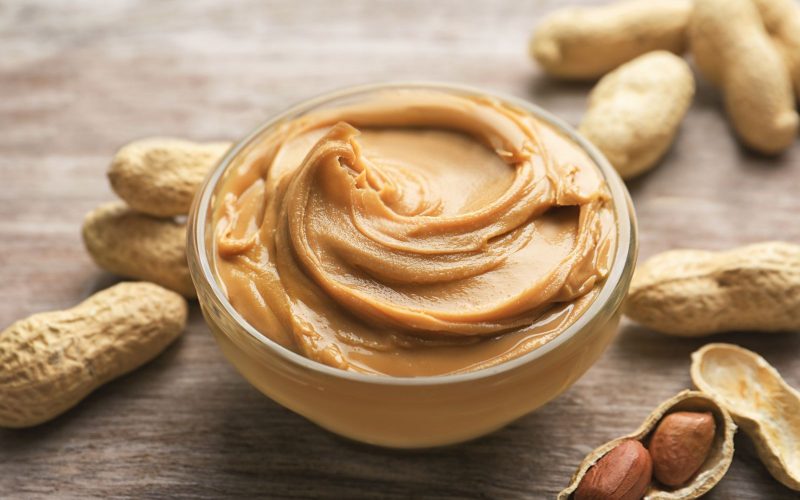The health advantages of peanut butter can include a lower threat of diabetes and heart diseases. It can also help in lowering hypertension and the chance of contracting viral and fungal infections.
What’s Natural peanut Butter with no added sugar?
Peanut butter is a paste created from dry, roasted peanuts. This paste is normally used as a pass on on toast or sandwiches. Peanuts, a kind of ground nuts, belong to the family of Fabaceae [1] and species of Arachis hypogaea. The vegetable itself is small where the branch of the blossom touches the bottom and expands underneath. It really is considered to have started in the American continent and through Spanish travelers, it was pass on all around the globe. Unlike costly nuts such as cashew nut products, pistachio nut products, almonds, and walnuts, peanuts are low-cost nut products that provide similar benefits.
Peanut Butter Nutrition
Based on the USDA Country wide Nutrient Database, peanut butter can be healthy food that is packed with nutrients such as proteins, carbohydrates, monounsaturated essential fatty acids, folate, niacin, pantothenic acid, pyridoxine, riboflavin, thiamin, vitamin E, vitamin C, vitamin A, sodium, magnesium, calcium, manganese, phosphorus, selenium, copper, iron, and zinc. Peanuts may contain no fats and can be consumed regularly.
Health Benefits of Peanut Butter
Apart from it has the great taste, peanut butter may have essential nutrients that are crucial for your body. The health benefits associated with this appetizing butter include the following:
Can be a High Way to obtain Protein
Peanut butter (100 grams) may include a high amount of protein (25 – 30 grams). Protein that we eat are divided into amino acids, that are then utilized in every cell for restoring and building the body.
May Lower Cholesterol Levels
A 2016 research newspaper published in the Journal of Food Research and Technology has revealed that peanuts can be a fantastic source of compounds like resveratrol, phenolic acids, flavonoids, and phytosterols that completely stop the absorption of cholesterol from the dietary plan. Probably, system.drawing.bitmap content in peanut butter is nearly add up to that of the fat found in extra virgin olive oil. It includes both polyunsaturated fat and monounsaturated fats. As these excess fat are not saturated, they are simply good to take without adding the center at any risk. The unsaturated fatty acids in peanut butter can help lower bad cholesterol levels (low-density lipoprotein) and could promote the flow of good cholesterol (high-density lipoprotein).
May Prevent Type 2 Diabetes
Eating peanut butter can also be beneficial in reducing the chance of type 2 diabetes. Peanuts contain not only proteins but also unsaturated excess fat. Unsaturated fats might have been known to boost insulin sensitivity. Research into peanut butter ingestion and diabetes confirmed a higher intake of peanut butter and other nut products can lower the chance of type 2 diabetes.
Can be a Good Way to obtain Vitamins
Peanut butter contains many vitamins that are can be best for our body to operate properly. Supplement A found in it can be ideal for eyesight, while vitamin C can help to boost the disease fighting capability and heals simple ulcers faster. Alternatively, vitamin E within peanut butter can be considered a very important micronutrient needed by our body to dissolve complex fatty acid constructions and excessive fat blockages in the arteries.
Potentially Antioxidant Properties
Peanut butter may contain antioxidant properties because of the occurrence of folate, niacin, pantothenic acid, pyridoxine, riboflavin, and thiamin. One of the antioxidants within it is resveratrol. Resveratrol is a polyphenolic antioxidant that might help in handling chronic diseases.
May Regulate Blood Sugar Levels
Peanut butter is an excellent source of magnesium (170mg/100 grams). This makes up 42% of the daily advised value of magnesium. Magnesium comes with an important role to play in muscle, bone, and immunity development in the body. Magnesium can also help in regulating blood sugar and blood pressure. Its existence inside our body can help in probably more than 300 biochemical reactions that are really important for our success.
Possibly Saturated in Potassium
Peanut butter contains potassium (70 mg/100g) which may become an electrolyte and it is a fluid-balancing factor in the torso. Compared to sodium, which straight puts strain on the cardiovascular system by means of hypertension, potassium will not put any pressure either on the bloodstream or on the heart. In place, potassium is a heart-friendly element that is situated in possibly high quantities in peanut butter.
May Reduce Threat of Gallstones
Gallstones, a significant health risk in developed countries, is caused when you are overweight, fad diets, certain types of cholesterol drugs, and birth control pills. A report printed in the American Journal of Clinical Diet on peanuts and nut usage relating to the chance of gallstones was performed and the results of the analysis showed that over an interval of 2 generations, women who consumed peanut butter and nuts regularly may have reduced their threat of developing gallstones.
